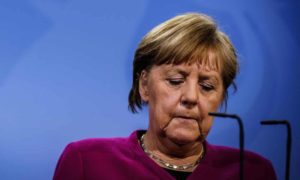With apologies to the Doobie Brothers for the title (dates me badly, I know), there has been considerable press lately, in Germany itself, and elsewhere about the intriguing turn-around in the country’s fight against the COVID-19 pandemic. In the early days, Germany’s success fighting the disease and persuading Germans to follow mitigation measures was hailed widely, especially when compared to the lackluster and ineffective efforts in the US. The explanation frequently given: Germans’ reputed respect for authority and obedience to rules. Chancellor Merkel was given credit for clarity and consistency of messaging, with her science background considered a major plus. The German government was seen as acting with the Gründlichkeit often seen as characteristic of Germans, i.e., thoroughness/rigor and a need to understand and consider all aspects of an issue.
But now, as a headline in the Guardian recently put it, that positive trait seems to be a liability: “Heroes to zeros: how German perfectionism wrecked its Covid vaccine drive. The same thoroughness that made Angela Merkel’s government a pandemic role model is now holding it back.” Gründlichkeit brings with it the need to know the truth, to get to the bottom of things, before making decisions. That aligns with Merkel’s well-known penchant for caution and deliberation before acting. While the US went ahead and ordered millions of doses of COVID-19 vaccines without knowing at the time whether any of those vaccines would actually work, Germany held back, wanting to see what the clinical trials would reveal. In fact, it wasn’t just Germany’s decision, but the joint decision of the European Union, of which Germany is a leading voice. The German authorities set up central vaccination sites with great organizational efficiency, only to discover that they went largely unused, because no vaccines were available. Now that vaccines are becoming available, the mixed messaging about the most widely available vaccine in Europe, AstraZeneca, has led many Germans to be wary. First that vaccine was for those under 65, then it was pulled entirely (fears over blood clots), then yesterday it was announced it would be available again, but this time for those over 65.
A substantial part of the problem in Germany is federalism, which, as in the US, has resulted in different Covid strategies in each German state, made more complicated by the fact that it is an election year and several state prime ministers are jockeying for position to replace Merkel. Meanwhile, Merkel issued this statement recently: “Wir wollen, dass die sprichwörtliche und im übrigen auch bewährte deutsche Gründlichkeit um mehr deutsche Flexibilität ergänzt wird” [We are going to supplement the proverbial and well-established German Gründlichkeit with more German flexibility.] Part of that newly-discovered “German flexibility” apparently will be something many have called for, namely allowing family doctors to administer the vaccine.
